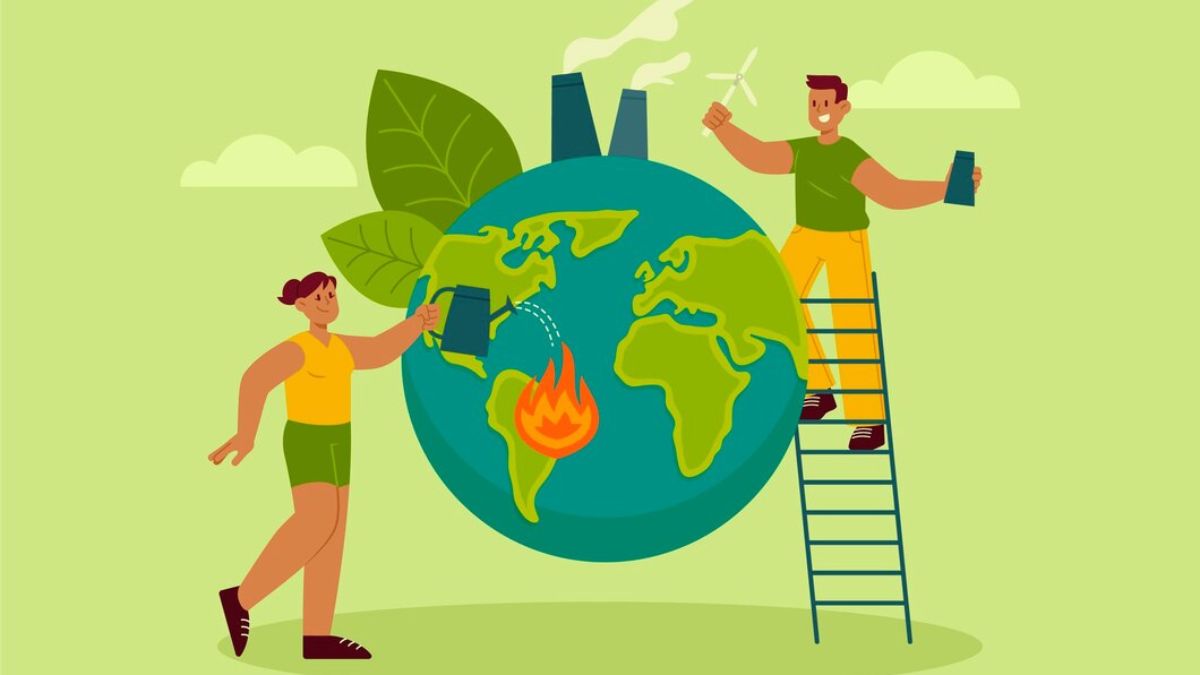ATMOSPHERE
Understanding Clima, Why It Matters and How We Can Make a Difference

Climate change has become one of the most pressing issues of our time, impacting ecosystems, communities, and economies globally. But what does “clima” really entail, and how does it affect us daily? This blog breaks down the concept of climate, explores its significance, and provides actionable steps to promote sustainability in our lives.
By the end of this post, you will:
- Understand what climate refers to and how it differs from weather
- Learn key facts about climate change and its effects on the planet
- Discover meaningful actions to reduce your environmental footprint
Let’s explore the foundations of clima and why it should matter to everyone.
What Is Clima?
To discuss climate effectively, we first need to define it. Clima refers to the long-term atmospheric patterns in a specific area, including temperature, humidity, precipitation, and wind. Unlike weather, which can change hourly or daily, climate describes patterns that last for decades or centuries.
For example, the Mediterranean region is known for its warm, dry summers and mild, wet winters—this is its climate. Understanding climate helps scientists track global trends and make predictions about future environmental changes.
Clima vs. Weather
Many people confuse climate with weather, but these terms have distinct meanings:
- Weather describes short-term atmospheric conditions at a specific time and place (e.g., a thunderstorm or sunny afternoon).
- Climate looks at long-term averages and patterns. For instance, the Sahara Desert has an arid climate with extremely low rainfall.
Understanding this distinction is vital for grasping the basics of climate science and how it relates to broader environmental changes.
Why Should We Care About Clima?
Climate shapes our ecosystems, food supply, health outcomes, and economic stability. Here are some key reasons why clima matters to everyone.
1. Impact on Natural Ecosystems
Changing climates disrupt delicate ecosystems, which depend on specific conditions to thrive. For instance:
- Coral reefs, which require stable water temperatures, are heavily impacted by warming oceans and are experiencing widespread bleaching.
- Melting ice in polar regions is threatening species like polar bears and seals, which rely on ice for hunting and breeding.
2. Effects on Agriculture
Farming and food production are highly sensitive to climate. Rising temperatures and unpredictable rainfall have led to decreased crop yields and increased food insecurity in many regions. For example:
- Coffee-growing zones in South America are shrinking due to warming climates.
- Droughts in Africa limit the production of staple crops like maize, leading to higher food prices.
3. Implications for Human Health
Climate change has serious implications for global health, including:
- Increased heatwaves that pose risks to vulnerable populations, including the elderly and children.
- The spread of diseases like malaria and dengue fever due to shifting habitats of disease-carrying insects.
- Poor air quality leading to respiratory diseases in cities plagued by smog.
4. Economic Consequences
The economic implications of climate change are immense. Extreme weather events such as hurricanes, floods, and wildfires damage infrastructure, disrupt commerce, and place a financial strain on governments.
According to the World Economic Forum, the cost of climate-related disasters reached $280 billion globally in 2022 alone.
What Causes Climate Change?
While Earth’s climate has naturally fluctuated over millennia, human activities have accelerated climate change at an unprecedented rate. Key contributors include:
- Greenhouse Gas Emissions: Burning fossil fuels (like coal, oil, and natural gas) releases carbon dioxide (CO2) and methane, which trap heat in the atmosphere.
- Deforestation: Cutting down forests reduces Earth’s ability to absorb CO2, contributing to increased atmospheric carbon levels.
- Industrial Practices: Manufacturing, mining, and factory farming contribute to pollution and release harmful gases into the environment.
How Can You Make a Difference?
While reversing climate change requires widespread systemic changes at the governmental and corporate levels, individual actions also matter. Here’s how you can reduce your environmental impact and inspire others to do the same.
1. Reduce Energy Consumption
Minimizing your energy use reduces the demand for fossil fuels. Simple changes include:
- Switching to energy-efficient LED bulbs
- Unplugging devices when not in use
- Using programmable thermostats to lower heating or cooling when unnecessary
2. Choose Sustainable Transportation
Reduce your travel-related carbon footprint by:
- Walking, biking, or carpooling whenever possible
- Using public transportation options
- Driving an electric or hybrid vehicle if feasible
3. Reduce, Reuse, Recycle
Adopting these three principles minimizes material waste:
- Buy reusable products, like metal water bottles or beeswax wraps
- Donate old clothing instead of throwing it away
- Make recycling a regular habit in your home and office
4. Support Renewable Energy
Encourage the transition to cleaner energy sources by:
- Installing solar panels at your home or business
- Choosing energy providers that prioritize wind, hydro, or solar power
- Advocating for policies that promote renewable energy investments
5. Advocate for Change
Change often starts with a single voice. Support initiatives and policies to combat climate change by:
- Contacting your local representatives about climate-friendly policies
- Voting for candidates who prioritize environmental sustainability
- Sharing knowledge about climate issues with friends and family
6. Conserve Water
Freshwater is an increasingly scarce resource. Small actions can make a big difference:
- Fix leaks in your household plumbing
- Opt for shorter showers and water-efficient appliances
- Avoid unnecessary lawn watering by using drought-tolerant plants in your landscape
The Need for Collective Action
Addressing climate change requires collaboration between individuals, businesses, and governments. Every action—big or small—contributes to the solution. By staying informed and making conscious choices, you’re contributing to a more sustainable future.
For businesses, investing in environmentally friendly practices and technologies is no longer optional. It’s a strategic imperative to remain competitive in an era where consumers increasingly demand sustainability.
Moving Forward
Understanding clima and its impacts is the first step toward meaningful action. Whether it’s switching to energy-efficient appliances at home or supporting policies that promote renewable energy, every effort matters.
If you’re ready to contribute to solutions or explore innovative tools for sustainability, stay engaged and learn more about actionable climate strategies. Together, we can build a better, greener planet for generations to come.

-

 BLOG10 months ago
BLOG10 months agoWho Is the Father of CSK? A Deep-Dive Into Chennai Super Kings’ Dominance in Cricket
-

 EDUCATION11 months ago
EDUCATION11 months agoHighlights From the September 18 Board of Education Meeting
-

 PLATFORM10 months ago
PLATFORM10 months agoThe Ultimate Guide to MyDesi.Net – Where Culture Meets Connection
-

 EDUCATION11 months ago
EDUCATION11 months agoA Look Back at the Board of Education City of Linden 2020 and Manganello’s Impact
-

 HOME IMPROVEMENT10 months ago
HOME IMPROVEMENT10 months agoHome Depot Tool Rental, Everything You Need to Know
-

 TECHNOLOGY11 months ago
TECHNOLOGY11 months agoUnderstanding Mega-Personal.Net Technology and Its Applications
-

 BLOG9 months ago
BLOG9 months agoUnderstanding Missav: Everything You Need to Know
-

 TRAVEL10 months ago
TRAVEL10 months agoTravel Smarter with TravelsForNow, Your Guide to Exploring the World